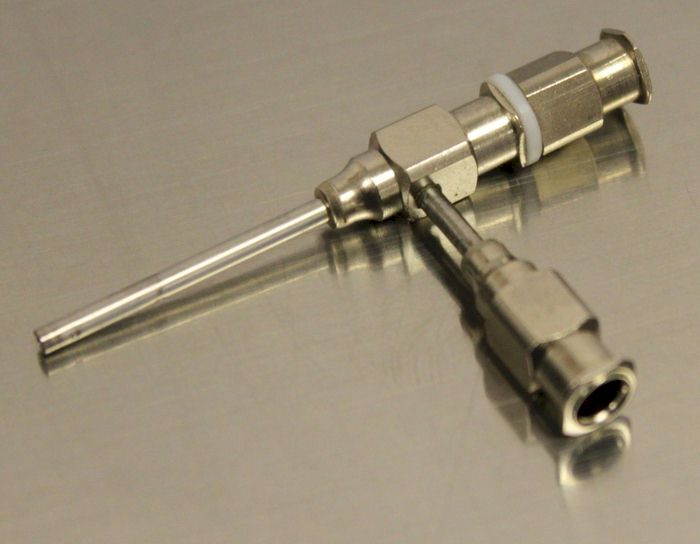|
Visit our website at
www.customspinnerets.com
|
| Bioprinting |
|
The fabrication of engineered tissue, bone, skin, and even organs may sound like something from a science-fiction movie. However, scientists and researchers are currently working on developing methods for producing complex structures using a technology called bioprinting. Bioprinting is really a specialized form of 3D printing; it has the potential to produce bone, skin, blood vessels, cartilage, and even some day, internal organs, as well as other living and non-living products from living cells and other biomaterials. A bioprinter works much like a 3D printer except instead of ejecting polymers or metals, it deposits layers of biomaterials - called bioinks. Bioinks are cultivated from cells taken from a patient or host. The bioprinter builds thin layers of bioink along with a collagen scaffold or other structure, such as hydrogels, to provide support. Because of the complexity of living organisms, bioprinting is becoming mainstream much slower than traditional 3D printing.
Within the domain of bioprinting, a novel method that utilizes a coaxial nozzle has proven effective in the formation of cell-infused hydrogel biostructures. Compared to other methods used to bioprint, this method, referred to as coaxial wet-spinning extrusion, is optimal for the formation of organs with built-in microchannels where high precision and structural stability are critical characteristics. Once fully developed this technology could save thousands of lives by reducing the wait time for organ transplants from years to mere days. Bioprinting will disrupt the way we think about medicine, disease and extending life expectancies. Innovation in healthcare solutions does not emanate from increased government involvement but rather from well-focused participants in the market economy working together to bring about a better world. In addition to using bioprinting to fabricate tissue and living replacement structures, it is anticipated that bioprinted parts can also be used to speed up drug discovery and development and reduce the need for mice and other animals which are currently used. While researchers are leveraging the power of bioprinting to solve long-running challenges and reshape the future of medicine, it's important to not underestimate the complexity of the human body, the safety testing, and the regulatory processes necessary to bring bioprinting to your doctor's office or a hospital near you. Whether you are doing research that involves bioprinting, electrospinning, electrospraying, or other application that requires coaxial dispensing, please visit our website www.customspinnerets.com to learn more about our custom coaxial, triaxial, quadaxial, side-by-side, and multi-channel spinnerets - as well as our spinneret arrays. If you don't see what you're looking for, contact us as there is a good chance we can make it for you. 1 Note that our spinneret
products are not intended for medical applications where regulated by
FDA requirements. |
| Coupon Offer |
For a limited time only, save $30 on the
purchase of any prebuilt
coaxial,
triaxial, or
quadaxial needle. Simply use the coupon code below.  |
|
Regards,
Carl Clegg |

